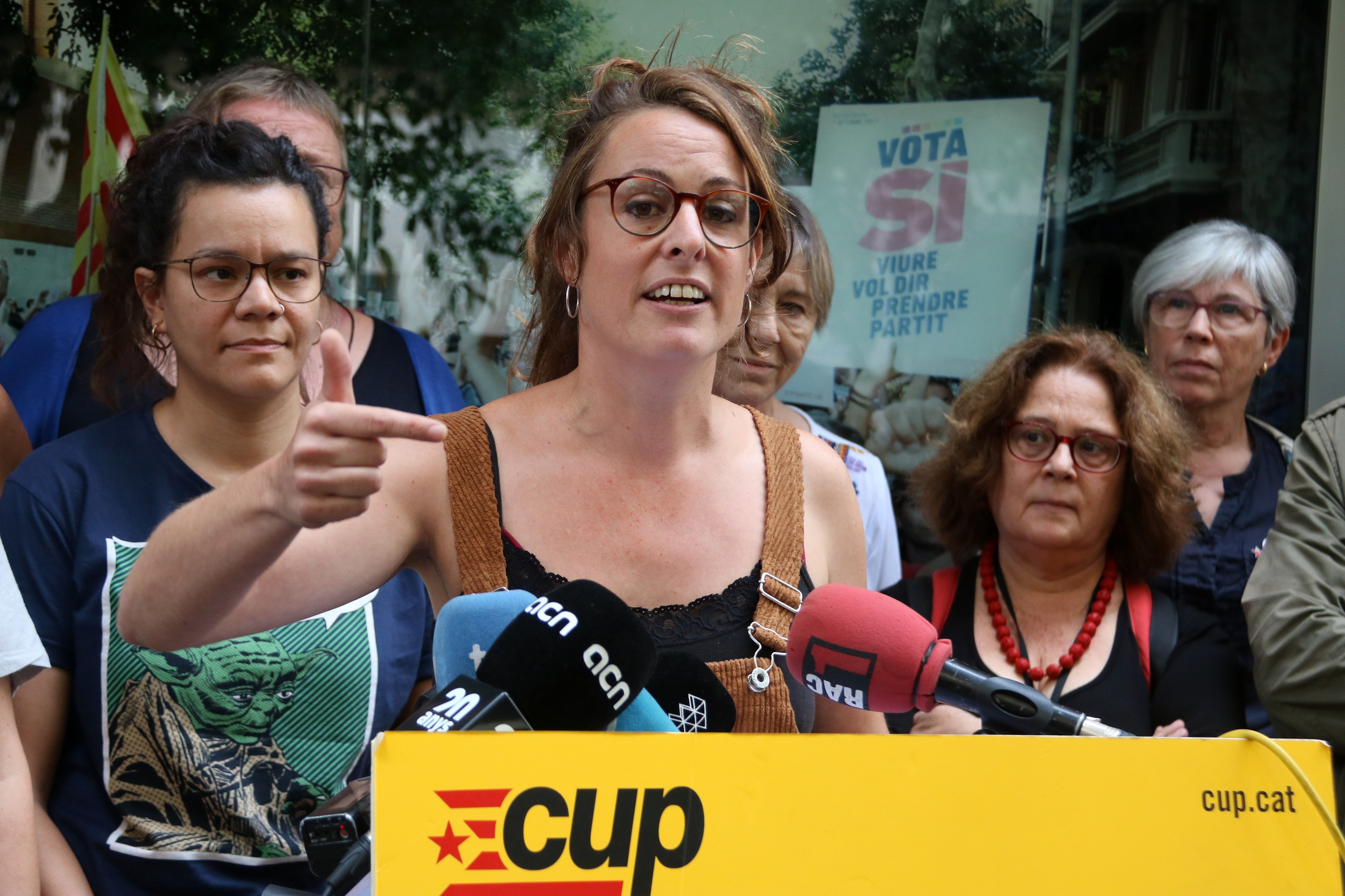The CUP political party is to stand in a Spanish general election for the first time, after the party membership voted in favour of this new strategy at the left-wing party's political council meeting, held this morning in Barcelona. Thus, the farthest left of the three Catalan pro-independence parties currently represented in the Barcelona parliament, whose full party name translates as Popular Unity Candidature, will be running for seats in the Spanish Congress at the upcoming general election on November 10th.
Having always rejected standing in Spanish elections up till now, the far-left pro-independence party justified its decision to seek seats in Madrid due to the "changing context, a context of repression and criminalization of independence, as we have seen this week, and on the eve of the announcement of the [Supreme Court] verdicts," it said in a press statement. "A context in which some pro-independence forces are showing themselves as willing to guarantee the governability of the Spanish state," said the CUP statement.
National secretary Mireia Vehí told media after the decision that "for the first time in its history, the pro-independence left and the CUP are deciding to run in the Spanish elections," she announced, adding that the decision had not been easy.
Vehí asserted that a situation of exceptionality existed: "We have more and more political prisoners, we have more people in custody all the time." "We are living through a moment of political exception, so we in the CUP are taking a step forward for amnesty, self-determination and the recognition of all rights, and for that reason we have decided to present a candidature for the 10th November elections," she explained.
Asked about the CUP's objective in the Spanish parliament, Vehí made it clear that the party was "not coming to guarantee governability, but to challenge [Spain's] repression and lack of democracy", and that they would fight for "those who suffer under the bitterest side of Spain and the troika" to be "left alone".
Vehí also commented that for the party "it was not an easy decision", given that the party has always said no to running in Spanish elections. "In times of political repression at all levels, we assume the responsibility of standing up to those who are acting against the interests of the people," she concluded.
The CUP spokesperson in the Catalan Parliament, Carles Riera, said in a tweet that "we have come to fight." "Against the regime, for self-determination, amnesty and for all rights: they shall not pass," he added.
Hem vingut a lluitar. Contra el Règim, per l’autodeterminació, l’amnistia i tots els drets: NO PASSARAN! ✊ #10N pic.twitter.com/yAg9FqefYn
— Carles Riera (@carlesral) September 28, 2019
It now remains to be see what action will be taken by Front Republicà, the left-wing coalition which at the 28th April general election had support from one of the political formations that are part of the CUP, Poble Lliure. For the moment, the head of the coalition's list, Albano-Dante Fachin, has already confirmed via Twitter that "the CUP refuse to repeat the Front Republicà agreement [of last April, involving Poble Lliure] and will stand alone, under its own name, the CUP."
🛑🛑🛑Perdó: m'avisen ara mateix des de la CUP que en aquest tuit que acabo de fer hi ha un error: LA CUP DESCARTA EL FRONT REPUBLICÀ I ES PRESENTEN SOLS COM A CUP. SENSE CAP COALICIÓ. Disculpeu. https://t.co/tbQAj4lryk
— Albano-Dante Fachin (@AlbanoDante76) September 28, 2019
Support from Poble Lliure
Subsequently, Poble Lliure issued a statement announcing its support for the candidature that the CUP is initiating. "We encourage Catalan people to get involved in the strategy of rupture we are deploying from PL, to collect signatures so that the CUP can stand for election on 10the November", the group urged.
📄COMUNICAT | Davant la decisió de la @cupnacional de concórrer a les eleccions del #10N a les Corts Espanyoles, @Poble_Lliure:
— Poble Lliure 🎗 (@Poble_Lliure) September 28, 2019
1⃣ Celebrem que la CUP assumeixi la seva responsabilitat com a organització amb voluntat de representar l'independentisme rupturista i d'esquerres. pic.twitter.com/ec8P078Pxv
Change of strategy
In the last Spanish general election, held on 28th April this year, the CUP decided not to stand, after holding a special political council meeting over the question. In the decision, 37 delegates voted not to run in the Spanish election, 20 voted in favour and 4 abstained.
On that occasion, the party membership considered that the necessary conditions to become a "truly rupturist and transformative" candidature in Spain did not exist.

